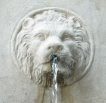Qur'anic vs Pentateuchal Musing
What do Allah and Yahweh say can verify or falsify their words?
And if ye are in doubtAccording to the Qur'an, evidence of its majestic and divine authorship can be traced back to the text itself. “Look at the Surah,” the voice of Allah declares, “and see if you can produce its like. But if nothing can equal or surpass it, then of truth, the Qur'an is from God.” The text presupposes, however, that when the task is undertaken, the Qur'an will be vindicated. Therefore, it cleverly shifts any possible detriment from itself or its prophet to the investigator with dire warnings for his own personal failing. We are essentially back where we began...belief that the Qur'an is divine word because it is inherently so. But initially, we are given this test of authenticity. Hopefully, our witnesses won't side with Allah against us if we come to the wrong conclusion.
As to what We have revealed
From time to time to Our servant [Muhammad]
Then produce a Surah
Like thereunto;
And call your witnesses or helpers
(If there are any) besides Allah,
If your (doubts) are true.
But if ye cannot--
And of a surety ye cannot--
Then fear the Fire
Whose fuel is Men and Stones
Which is prepared for those
Who reject Faith
--Surah 2:23-24, The Meaning of the Holy Qur'an, Abdullah Yusuf Ali
But if any prophet presumes to speak anything in my name that I have not authorized him to speak, or speaks in the name of other gods, that prophet must die. Now if you say to yourselves, “How can we tell that a message is not from the Lord?” - whenever a prophet speaks in my name and the prediction is not fulfilled, then I have not spoken it.Far from implicating an investigator for unsatisfactory results, Yahweh discharges his own authority and holds the so-called prophet, himself, responsible. If the result is negative, Muhammad is hardly held to account for what he speaks, but Moses' very life hangs in the balance. In opposition to the Qur'an, which points at the structure and nature of itself, the Pentateuch points out from itself to historical event. Thus not only are we given an actual way to determine authenticity, but the Pentateuch as divine word remains vulnerable to rejection. The end result is that the burden of proof remains with Yahweh, whereas he who would doubt Allah is suspect.
--Deuteronomy 18:20-22a, NET

0 Comments:
Post a Comment
<< Home